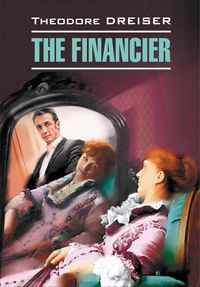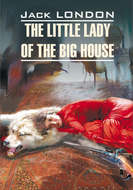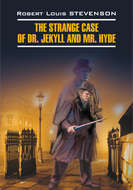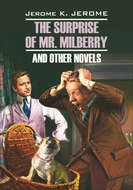Kitabı oku: «The Financier / Финансист. Книга для чтения на английском языке», sayfa 6
Chapter XI
It was while the war was on, and after it was perfectly plain that it was not to be of a few days’ duration, that Cowperwood’s first great financial opportunity came to him. There was a strong demand for money at the time on the part of the nation, the State, and the city. In July, 1861, Congress had authorized a loan of fifty million dollars, to be secured by twenty-year bonds with interest not to exceed seven per cent., and the State authorized a loan of three millions on much the same security, the first being handled by financiers of Boston, New York, and Philadelphia, the second by Philadelphia financiers alone. Cowperwood had no hand in this.65 He was not big enough. He read in the papers of gatherings of men whom he knew personally or by reputation, “to consider the best way to aid the nation or the State”; but he was not included. And yet his soul yearned to be of them. He noticed how often a rich man’s word sufficed – no money, no certificates, no collateral, no anything – just his word. If Drexel & Co., or Jay Cooke & Co., or Gould & Fiske were rumored to be behind anything, how secure it was! Jay Cooke, a young man in Philadelphia, had made a great strike taking this State loan in company with Drexel & Co., and selling it at par. The general opinion was that it ought to be and could only be sold at ninety. Cooke did not believe this. He believed that State pride and State patriotism would warrant offering the loan to small banks and private citizens, and that they would subscribe it fully and more. Events justified Cooke magnificently, and his public reputation was assured. Cowperwood wished he could make some such strike; but he was too practical to worry over anything save the facts and conditions that were before him.
His chance came about six months later, when it was found that the State would have to have much more money. Its quota of troops would have to be equipped and paid. There were measures of defense to be taken, the treasury to be replenished. A call for a loan of twenty-three million dollars was finally authorized by the legislature and issued. There was great talk in the street as to who was to handle it – Drexel & Co. and Jay Cooke & Co., of course.
Cowperwood pondered over this. If he could handle afraction of this great loan now – he could not possibly handle the whole of it, for he had not the necessary connections – he could add considerably to his reputation as a broker while making a tidy sum. How much could he handle? That was the question. Who would take portions of it? His father’s bank? Probably. Waterman & Co.? A little. Judge Kitchen? A small fraction. The Mills–David Company? Yes. He thought of different individuals and concerns who, for one reason and another – personal friendship, good-nature, gratitude for past favors, and so on – would take a percentage of the seven per cent. bonds through him. He totaled up his possibilities, and discovered that in all likelihood, with a little preliminary missionary work, he could dispose of one million dollars if personal influence, through local political figures, could bring this much of the loan his way.
One man in particular had grown strong in his estimation as having some subtle political connection not visible on the surface, and this was Edward Malia Butler. Butler was a contractor, undertaking the construction of sewers, water-mains, foundations for buildings, street-paving, and the like. In the early days, long before Cowperwood had known him, he had been a garbage-contractor on his own account. The city at that time had no extended street-cleaning service, particularly in its outlying sections and some of the older, poorer regions. Edward Butler, then a poor young Irishman, had begun by collecting and hauling away the garbage free of charge, and feeding it to his pigs and cattle. Later he discovered that some people were willing to pay a small charge for this service. Then a local political character, a councilman friend of his – they were both Catholics – saw a new point in the whole thing. Butler could be made official garbage-collector. The council could vote an annual appropriation for this service. Butler could employ more wagons than he did now – dozens of them, scores. Not only that, but no other garbage-collector would be allowed. There were others, but the official contract awarded him would also, officially, be the end of the life of any and every disturbing rival. A certain amount of the profitable proceeds would have to be set aside to assuage the feelings of those who were not contractors. Funds would have to be loaned at election time to certain individuals and organizations – but no matter. The amount would be small. So Butler and Patrick Gavin Comiskey, the councilman (the latter silently) entered into business relations. Butler gave up driving a wagon himself. He hired a young man, a smart Irish boy of his neighborhood, Jimmy Sheehan, to be his assistant, superintendent, stableman, bookkeeper, and what not. Since he soon began to make between four and five thousand a year, where before he made two thousand, he moved into a brick house in an outlying section of the south side, and sent his children to school. Mrs. Butler gave up making soap and feeding pigs. And since then times had been exceedingly good with Edward Butler.
He could neither read nor write at first; but now he knew how, of course. He had learned from association with Mr. Comiskey that there were other forms of contracting – sewers, watermains, gas-mains, street-paving, and the like. Who better than Edward Butler to do it? He knew the councilmen, many of them. He met them in the back rooms of saloons, on Sundays and Saturdays at political picnics, at election councils and conferences, for as a beneficiary of the city’s largess he was expected to contribute not only money, but advice. Curiously he had developed a strange political wisdom. He knew a successful man or a coming man when he saw one. So many of his bookkeepers, superintendents, time-keepers had graduated into councilmen and state legislators. His nominees – suggested to political conferences – were so often known to make good. First he came to have influence in his councilman’s ward, then in his legislative district, then in the city councils of his party – Whig66, of course – and then he was supposed to have an organization.
Mysterious forces worked for him in council. He was awarded significant contracts, and he always bid. The garbage business was now a thing of the past. His eldest boy, Owen, was a member of the State legislature and a partner in his business affairs. His second son, Callum, was a clerk in the city water department and an assistant to his father also. Aileen, his eldest daughter, fifteen years of age, was still in St. Agatha’s, a convent school in Germantown. Norah, his second daughter and youngest child, thirteen years old, was in attendance at a local private school conducted by a Catholic sisterhood. The Butler family had moved away from South Philadelphia into Girard Avenue, near the twelve hundreds, where a new and rather interesting social life was beginning. They were not of it, but Edward Butler, contractor, now fifty-five years of age, worth, say, five hundred thousand dollars, had many political and financial friends. No longer a “rough neck,” but a solid, reddish-faced man, slightly tanned, with broad shoulders and a solid chest, gray eyes, gray hair, a typically Irish face made wise and calm and undecipherable by much experience. His big hands and feet indicated a day when he had not worn the best English cloth suits and tanned leather, but his presence was not in any way offensive – rather the other way about. Though still possessed of a brogue, he was soft-spoken, winning, and persuasive.
He had been one of the first to become interested in the development of the street-car system and had come to the conclusion, as had Cowperwood and many others, that it was going to be a great thing. The money returns on the stocks or shares he had been induced to buy had been ample evidence of that. He had dealt through one broker and another, having failed to get in on the original corporate organizations.
He wanted to pick up such stock as he could in one organization and another, for he believed they all had a future, and most of all he wanted to get control of a line or two. In connection with this idea he was looking for some reliable young man, honest and capable, who would work under his direction and do what he said. Then he learned of Cowperwood, and one day sent for him and asked him to call at his house.
Cowperwood responded quickly, for he knew of Butler, his rise, his connections, his force. He called at the house as directed, one cold, crisp February morning. He remembered the appearance of the street afterward – broad, brick-paved sidewalks, macadamized roadway, powdered over with a light snow and set with young, leafless, scrubby trees and lampposts. Butler’s house was not new – he had bought and repaired it – but it was not an unsatisfactory specimen of the architecture of the time. It was fifty feet wide, four stories tall, of graystone and with four wide, white stone steps leading up to the door. The window arches, framed in white, had U-shaped keystones. There were curtains of lace and a glimpse of red plush through the windows, which gleamed warm against the cold and snow outside. A trim Irish maid came to the door and he gave her his card and was invited into the house.
“Is Mr. Butler home?”
“I’m not sure, sir. I’ll find out. He may have gone out.”
In a little while he was asked to come upstairs, where he found Butler in a somewhat commercial-looking room. It had a desk, an office chair, some leather furnishings, and a bookcase, but no completeness or symmetry as either an office or a living room. There were several pictures on the wall – an impossible oil painting, for one thing, dark and gloomy; a canal and barge scene in pink and nile green for another; some daguerreotypes of relatives and friends which were not half bad. Cowperwood noticed one of two girls, one with reddish-gold hair, another with what appeared to be silky brown. The beautiful silver effect of the daguerreotype had been tinted67. They were pretty girls, healthy, smiling, Celtic, their heads close together, their eyes looking straight out at you. He admired them casually, and fancied they must be Butler’s daughters.
“Mr. Cowperwood?” inquired Butler, uttering the name fully with a peculiar accent on the vowels. (He was a slow-moving man, solemn and deliberate.) Cowperwood noticed that his body was hale and strong like seasoned hickory, tanned by wind and rain. The flesh of his cheeks was pulled taut and there was nothing soft or flabby about him.
“I’m that man.”
“I have a little matter of stocks to talk over with you” (“matter” almost sounded like “mather”), “and I thought you’d better come here rather than that I should come down to your office. We can be more private-like, and, besides, I’m not as young as I used to be.”
He allowed a semi-twinkle to rest in his eye as he looked his visitor over.
Cowperwood smiled.
“Well, I hope I can be of service to you,” he said, genially. “I happen to be interested just at present in pickin’ up certain street-railway stocks on ’change. I’ll tell you about them later. Won’t you have somethin’68 to drink? It’s a cold morning.”
“No, thanks; I never drink.”
“Never? That’s a hard word when it comes to whisky. Well, no matter. It’s a good rule. My boys don’t touch anything, and I’m glad of it. As I say, I’m interested in pickin’ up a few stocks on ’change; but, to tell you the truth, I’m more interested in findin’ some clever young felly like yourself through whom I can work. One thing leads to another, you know, in this world.” And he looked at his visitor non-committally, and yet with a genial show of interest.
“Quite so,” replied Cowperwood, with a friendly gleam in return.
“Well,” Butler meditated, half to himself, half to Cowperwood, “there are a number of things that a bright young man could do for me in the street if he were so minded. I have two bright boys of my own, but I don’t want them to become stock-gamblers, and I don’t know that they would or could if I wanted them to. But this isn’t a matter of stock-gambling. I’m pretty busy as it is, and, as I said awhile ago, I’m getting along. I’m not as light on my toes as I once was.69 But if I had the right sort of a young man – I’ve been looking into your record, by the way, never fear – he might handle a number of little things – investments and loans – which might bring us each a little somethin’. Sometimes the young men around town ask advice of me in one way and another – they have a little somethin’ to invest, and so – ”
He paused and looked tantalizingly out of the window, knowing full well Cowperwood was greatly interested, and that this talk of political influence and connections could only whet his appetite. Butler wanted him to see clearly that fidelity was the point in this case – fidelity, tact, subtlety, and concealment.
“Well, if you have been looking into my record,” observed Cowperwood, with his own elusive smile, leaving the thought suspended.
Butler felt the force of the temperament and the argument. He liked the young man’s poise and balance. A number of people had spoken of Cowperwood to him. (It was now Cowperwood & Co. The company was fiction purely.) He asked him something about the street; how the market was running; what he knew about street-railways. Finally he outlined his plan of buying all he could of the stock of two given lines – the Ninth and Tenth and the Fifteenth and Sixteenth – without attracting any attention, if possible. It was to be done slowly, part on ’change, part from individual holders. He did not tell him that there was a certain amount of legislative pressure he hoped to bring to bear to get him franchises for extensions in the regions beyond where the lines now ended, in order that when the time came for them to extend their facilities they would have to see him or his sons, who might be large minority stockholders in these very concerns. Itwas a far-sighted plan, and meant that the lines would eventually drop into his or his sons’ basket.
“I’ll be delighted to work with you, Mr. Butler, in any way that you may suggest,” observed Cowperwood. “I can’t say that I have so much of a business as yet – merely prospects. But my connections are good. I am now a member of the New York and Philadelphia exchanges. Those who have dealt with me seem to like the results I get.”
“I know a little something about your work already,” reiterated Butler, wisely.
“Very well, then; whenever you have a commission you can call at my office, or write, or I will call here. I will give you my secret operating code, so that anything you say will be strictly confidential.”
“Well, we’ll not say anything more now. In a few days I’ll have somethin’ for you. When I do, you can draw on my bank for what you need, up to a certain amount70.” He got up and looked out into the street, and Cowperwood also arose.
“It’s a fine day now, isn’t it?”
“It surely is.”
“Well, we’ll get to know each other better, I’m sure.”
He held out his hand.
“I hope so.”
Cowperwood went out, Butler accompanying him to the door. As he did so a young girl bounded in from the street, red-cheeked, blue-eyed, wearing a scarlet cape with the peaked hood thrown over her red-gold hair.
“Oh, daddy, I almost knocked you down.”
She gave her father, and incidentally Cowperwood, a gleaming, radiant, inclusive smile. Her teeth were bright and small, and her lips bud-red.
“You’re home early. I thought you were going to stay all day?”
“I was, but I changed my mind.”
She passed on in, swinging her arms.
“Yes, well – ” Butler continued, when she had gone. “Then we’ll leave it for a day or two. Good day.”
“Good day.”
Cowperwood, warm with this enhancing of his financial prospects, went down the steps; but incidentally he spared a passing thought for the gay spirit of youth that had manifested itself in this red-cheeked maiden. What a bright, healthy, bounding girl! Her voice had the subtle, vigorous ring of fifteen or sixteen. She was all vitality. What a fine catch for some young fellow some day, and her father would make him rich, no doubt, or help to.
Chapter XII
It was to Edward Malia Butler that Cowperwood turned now, some nineteen months later when he was thinking of the influence that might bring him an award of a portion of the State issue of bonds. Butler could probably be interested to take some of them himself, or could help him place some. He had come to like Cowperwood very much and was now being carried on the latter’s books as a prospective purchaser of large blocks of stocks. And Cowperwood liked this great solid Irishman. He liked his history. He had met Mrs. Butler, a rather fat and phlegmatic Irish woman with a world of hard sense who cared nothing at all for show and who still liked to go into the kitchen and superintend the cooking. He had met Owen and Callum Butler, the boys, and Aileen and Norah, the girls. Aileen was the one who had bounded up the steps the first day he had called at the Butler house several seasons before.
There was a cozy grate-fire burning in Butler’s improvised private office when Cowperwood called. Spring was coming on, but the evenings were cool. The older man invited Cowperwood to make himself comfortable in one of the large leather chairs before the fire and then proceeded to listen to his recital of what he hoped to accomplish.
“Well, now, that isn’t so easy,” he commented at the end. “You ought to know more about that than I do. I’m not a financier, as you well know.” And he grinned apologetically.
“It’s a matter of influence,” went on Cowperwood. “And favoritism. That I know. Drexel & Company and Cooke & Company have connections at Harrisburg. They have men of their own looking after their interests. The attorney-general and the State treasurer are hand in glove with them71. Even if I put in a bid, and can demonstrate that I can handle the loan, it won’t help me to get it. Other people have done that. I have to have friends – influence. You know how it is.”
“Them things,” Butler said, “is easy enough if you know the right parties to approach. Now there’s Jimmy Oliver – heought to know something about that.” Jimmy Oliver was the whilom district attorney serving at this time, and incidentally free adviser to Mr. Butler in many ways. He was also, accidentally, a warm personal friend of the State treasurer.
“How much of the loan do you want?”
“Five million.”
“Five million!” Butler sat up. “Man, what are you talking about? That’s a good deal of money. Where are you going to sell all that?”
“I want to bid for five million,” assuaged Cowperwood, softly. “I only want one million but I want the prestige of putting in a bona fide bid for five million. It will do me good on the street.”
Butler sank back somewhat relieved.
“Five million! Prestige! You want one million. Well, now, that’s different. That’s not such a bad idea. We ought to be able to get that.”
He rubbed his chin some more and stared into the fire.
And Cowperwood felt confident when he left the house that evening that Butler would not fail him but would set the wheels working. Therefore, he was not surprised, and knew exactly what it meant, when a few days later he was introduced to City Treasurer Julian Bode, who promised to introduce him to State Treasurer Van Nostrand and to see that his claims to consideration were put before the people. “Of course, you know,” he said to Cowperwood, in the presence of Butler, for it was at the latter’s home that the conference took place, “this banking crowd is very powerful. You know who they are. They don’t want any interference in this bond issue business. I was talking to Terrence Relihan, who represents them up there” – meaning Harrisburg, the State capital – “and he says they won’t stand for it at all. You may have trouble right here in Philadelphia after you get it – they’re pretty powerful, you know. Are you sure just where you can place it?”
“Yes, I’m sure,” replied Cowperwood.
“Well, the best thing in my judgment is not to say anything at all. Just put in your bid. Van Nostrand, with the governor’s approval, will make the award. We can fix the governor72, I think. After you get it they may talk to you personally, but that’s your business.”
Cowperwood smiled his inscrutable smile. There were so many ins and outs73 to this financial life. It was an endless network of underground holes, along which all sorts of influences were moving. A little wit, a little nimbleness, a little luck-time and opportunity – these sometimes availed. Here he was, through his ambition to get on, and nothing else, coming into contact with the State treasurer and the governor. They were going to consider his case personally, because he demanded that it be considered – nothing more. Others more influential than himself had quite as much right to a share, but they didn’t take it. Nerve, ideas, aggressiveness, how these counted when one had luck!
He went away thinking how surprised Drexel & Co. and Cooke & Co. would be to see him appearing in the field as a competitor. In his home, in a little room on the second floor next his bedroom, which he had fixed up as an office with a desk, a safe, and a leather chair, he consulted his resources. There were so many things to think of. He went over again the list of people whom he had seen and whom he could count on to subscribe, and in so far as that was concerned – the award of one million dollars – he was safe. He figured to make two per cent. on the total transaction, or twenty thousand dollars. If he did he was going to buy a house out on Girard Avenue beyond the Butlers’, or, better yet, buy a piece of ground and erect one; mortgaging house and property so to do. His father was prospering nicely. He might want to build a house next to him, and they could live side by side. His own business, aside from this deal, would yield him ten thousand dollars this year. His street-car investments, aggregating fifty thousand, were paying six per cent. His wife’s property, represented by this house, some government bonds, and some real estate in West Philadelphia amounted to forty thousand more. Between them they were rich; but he expected to be much richer. All he needed now was to keep cool. If he succeeded in this bond-issue matter, he could do it again and on a larger scale. There would be more issues. He turned out the light after a while and went into his wife’s boudoir, where she was sleeping. The nurse and the children were in a room beyond.
“Well, Lillian,” he observed, when she awoke and turned over toward him, “I think I have that bond matter that I was telling you about arranged at last. I think I’ll get a million of it, anyhow. That’ll mean twenty thousand. If I do we’ll build out on Girard Avenue. That’s going to be the street. The college is making that neighborhood.”
“That’ll be fine, won’t it, Frank!” she observed, and rubbed his arm as he sat on the side of the bed.
Her remark was vaguely speculative.
“We’ll have to show the Butlers some attention from now on. He’s been very nice to me and he’s going to be useful – I can see that. He asked me to bring you over some time. We must go. Be nice to his wife. He can do a lot for me if he wants to. He has two daughters, too. We’ll have to have them over here.”
“I’ll have them to dinner sometime,” she agreed cheerfully and helpfully, “and I’ll stop and take Mrs. Butler driving if she’ll go, or she can take me.”
She had already learned that the Butlers were rather showy – the younger generation – that they were sensitive as to their lineage, and that money in their estimation was supposed to make up for any deficiency in any other respect. “Butler himself is a very presentable man,” Cowperwood had once remarked to her, “but Mrs. Butler – well, she’s all right, but she’s a little commonplace. She’s a fine woman, though, I think, good-natured and good-hearted.” He cautioned her not to overlook Aileen and Norah, because the Butlers, mother and father, were very proud of them.
Mrs. Cowperwood at this time was thirty-two years old; Cowperwood twenty-seven. The birth and care of two children had made some difference in her looks. She was no longer as softly pleasing, more angular. Her face was hollow-cheeked, like so many of Rossetti’s and Burne-Jones’s women74. Her health was really not as good as it had been – the care of two children and a late undiagnosed tendency toward gastritis having reduced her. In short she was a little run down nervously and suffered from fits of depression. Cowperwood had noticed this. He tried to be gentle and considerate, but he was too much of a utilitarian and practical-minded observer not to realize that he was likely to have a sickly wife on his hands later. Sympathy and affection were great things, but desire and charm must endure or one was compelled to be sadly conscious of their loss. So often now he saw young girls who were quite in his mood75, and who were exceedingly robust and joyous. It was fine, advisable, practical, to adhere to the virtues as laid down in the current social lexicon, but if you had a sickly wife…And anyhow, was a man entitled to only one wife? Must he never look at another woman? Supposing he found someone? He pondered those things between hours of labor, and concluded that it did not make so much difference. If a man could, and not be exposed, it was all right. He had to be careful, though. Tonight, as he sat on the side of his wife’s bed, he was thinking somewhat of this, for he had seen Aileen Butler again, playing and singing at her piano as he passed the parlor door. She was like a bright bird radiating health and enthusiasm – a reminder of youth in general.
“It’s a strange world,” he thought; but his thoughts were his own, and he didn’t propose to tell anyone about them.
The bond issue, when it came, was a curious compromise; for, although it netted him his twenty thousand dollars and more and served to introduce him to the financial notice of Philadelphia and the State of Pennsylvania, it did not permit him to manipulate the subscriptions as he had planned. The State treasurer was seen by him at the office of a local lawyer of great repute, where he worked when in the city. He was gracious to Cowperwood, because he had to be. He explained to him just how things were regulated at Harrisburg. The big financiers were looked to for campaign funds. They were represented by henchmen in the State assembly and senate. The governor and the treasurer were foot-free; but there were other influences – prestige, friendship, social power, political ambitions, etc. The big men might constitute a close corporation, which in itself was unfair; but, after all, they were the legitimate sponsors for big money loans of this kind. The State had to keep on good terms with them, especially in times like these. Seeing that Mr. Cowperwood was so well able to dispose of the million he expected to get, it would be perfectly all right to award it to him; but Van Nostrand had a counterproposition to make. Would Cowperwood, if the financial crowd now handling the matter so desired, turn over his award to them for a consideration76 – a sum equal to what he expected to make – in the event the award was made to him? Certain financiers desired this. It was dangerous to oppose them. They were perfectly willing he should put in a bid for five million and get the prestige of that; to have him awarded one million and get the prestige of that was well enough also, but they desired to handle the twenty-three million dollars in an unbroken lot. It looked better. He need not be advertised as having withdrawn. They would be content to have him achieve the glory of having done what he started out to do. Just the same the example was bad. Others might wish to imitate him. If it were known in the street privately that he had been coerced, for a consideration, into giving up, others would be deterred from imitating him in the future. Besides, if he refused, they could cause him trouble. His loans might be called. Various banks might not be so friendly in the future. His constituents77 might be warned against him in one way or another.
Cowperwood saw the point. He acquiesced. It was something to have brought so many high and mighties to their knees. So they knew of him! They were quite well aware of him! Well and good. He would take the award and twenty thousand or thereabouts78 and withdraw. The State treasurer was delighted. It solved a ticklish proposition for him.79
“I’m glad to have seen you,” he said. “I’m glad we’ve met. I’ll drop in and talk with you some time when I’m down this way. We’ll have lunch together.”
The State treasurer, for some odd reason, felt that Mr. Cowperwood was a man who could make him some money. His eye was so keen; his expression was so alert, and yet so subtle. He told the governor and some other of his associates about him.
So the award was finally made; Cowperwood, after some private negotiations in which he met the officers of Drexel & Co., was paid his twenty thousand dollars and turned his share of the award over to them. New faces showed up in his office now from time to time – among them that of Van Nostrand and one Terrence Relihan, a representative of some other political forces at Harrisburg. He was introduced to the governor one day at lunch. His name was mentioned in the papers, and his prestige grew rapidly.
Immediately he began working on plans with young Ellsworth for his new house. He was going to build something exceptional this time, he told Lillian. They were going to have to do some entertaining – entertaining on a larger scale than ever. North Front Street was becoming too tame.
He put the house up for sale, consulted with his father and found that he also was willing to move. The son’s prosperity had redounded to the credit of the father. The directors of the bank were becoming much more friendly to the old man. Next year President Kugel was going to retire. Because of his son’s noted coup, as well as his long service, he was going to be made president. Frank was a large borrower from his father’s bank. By the same token80 he was a large depositor. His connection with Edward Butler was significant. He sent his father’s bank certain accounts which it otherwise could not have secured. The city treasurer became interested in it, and the State treasurer. Cowperwood, Sr., stood to earn twenty thousand a year as president, and he owed much of it to his son. The two families were now on the best of terms. Anna, now twenty-one, and Edward and Joseph frequently spent the night at Frank’s house. Lillian called almost daily at his mother’s. There was much interchange of family gossip, and it was thought well to build side by side. So Cowperwood, Sr., bought fifty feet of ground next to his son’s thirty-five, and together they commenced the erection of two charming, commodious homes, which were to be connected by a covered passageway, or pergola, which could be inclosed with glass in winter.








